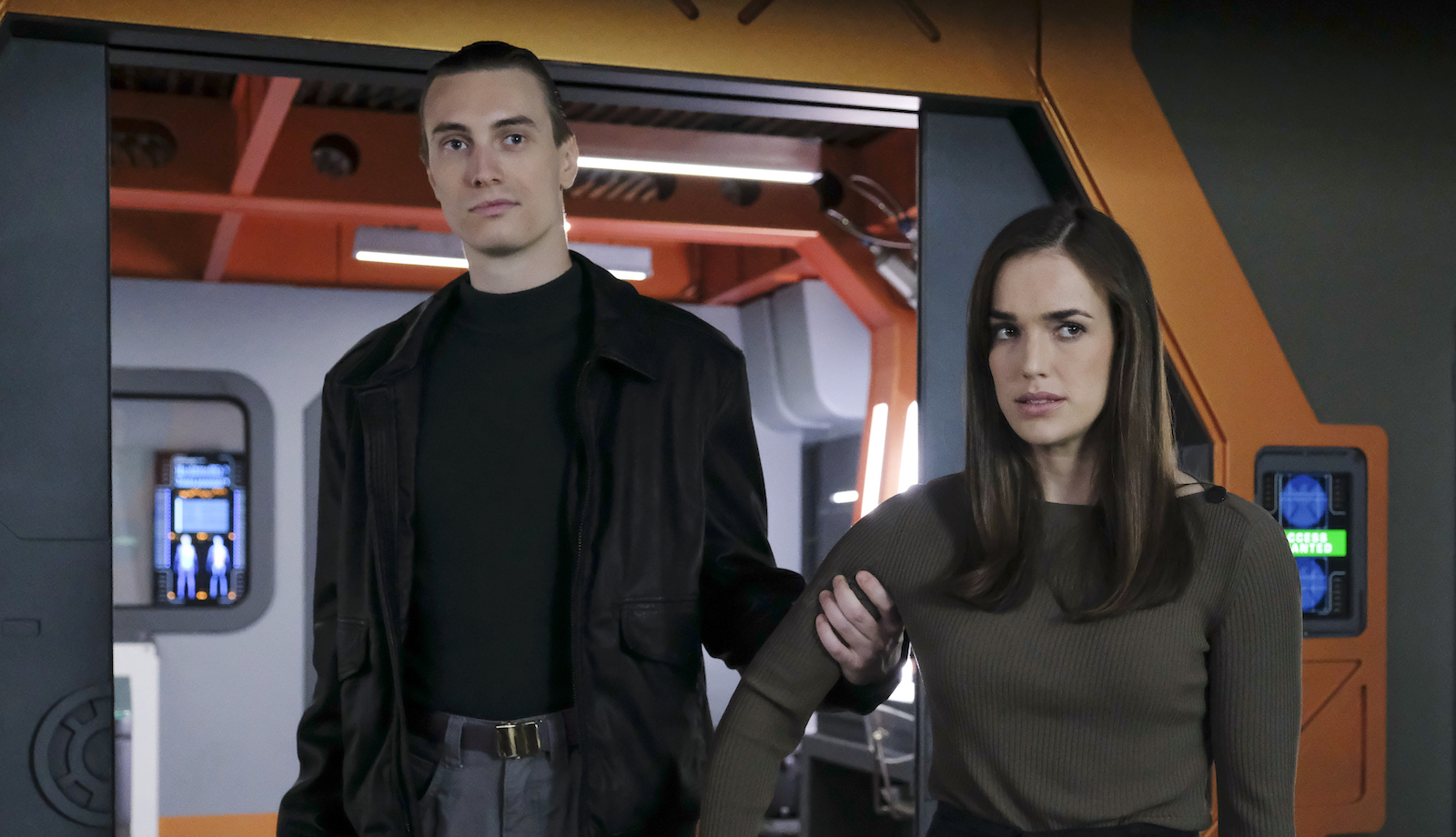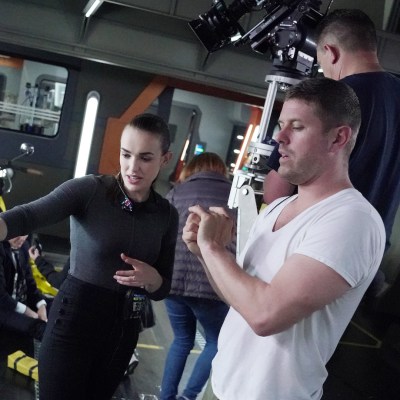This review contains spoilers for Agents of SHIELD.
Agents of SHIELD Season 7 Episode 10
Let’s not mince words; Nathaniel Malick is not a great Agents of SHIELD villain. However, “Stolen” does enhance his antagonism a little even as it emphasizes his weaknesses, and the resulting mayhem is still cool to watch. And by the end of the episode, we at least get a hint of Sybil’s plan even if her reliance on Inhuman powers seems only indirectly related to getting what she supposedly really wants: a new Chronicom home planet.
Specifically, Nathaniel as a viable enemy has two problems. First of all, his disconnectedness from Hydra and his father’s devotion to Hive is explained via a love of anarchy, which comes across as a very bland flavor of evil. And secondly, his foreknowledge of the events in the SHIELD team’s lives gives him an advantage that he doesn’t deserve, making his position of power in the narrative feel very much unearned.
In that sense, it was nice to see Daisy go into god mode with her Quake powers after Nathaniel snapped Jiaying’s neck because no matter how long he has had his stolen powers, Daisy is the OG, and the frightened look on the imposter’s face was priceless. It seems like Jiaying should actually be able to recover from such an injury, grievous as it is, but the tragedy still had plenty of impact since she had only just learned that Daisy was her daughter.
In a sense, Nathaniel may have been upstaged by his new recruit, a young John Garrett, who took on Gordon’s powers perhaps a bit too easily considering how much difficulty the young Inhuman had when he first underwent Terrigenesis. James Paxton, the son of the late Bill Paxton who originated the role of Garrett, did a spot-on impression of his old man, and his digs at the various SHIELD team members provided a great trip down memory lane going all the way back to Agents of SHIELD season one.
The best scenes of the episode by far, though, were the emotional moments between Daisy and her mother. Learning about Kora’s troubled transformation and the possible suicide in the original timeline deepened Jiaying’s humanity and answered a long-held question of why the leader of Afterlife was doing charity work when she met Daisy’s father. The reminder that Daisy was disappointed the first time she met her mother was then made more poignant by Jiaying’s statement, “Sometimes trying to do the right thing comes out all wrong.”
Read more
Having Sousa as Daisy’s wingman also felt right somehow, especially with Simmons noticing the growing connection between the pair. Simmons herself had a surprising bit of insight as well when Daisy told her about her “devastated” reaction when the memory inhibitor was removed during the time loop. Agents of SHIELD fans would flip if Fitz were indeed dead, but the worries she shares with Deke set the stage beautifully for the real reason Nathaniel infiltrated the Lighthouse.
It was a nice twist considering our low opinion of Nathaniel’s “anarchy” plan! Leading us to believe that Jiaying was the target and then having her supposedly die was a brilliant misdirect considering how little the transfer of Inhuman powers to evil henchmen has to do with either the defeat of SHIELD or a Chronicom takeover of Earth. The quick capture of Coulson, knowing he was about to arrive at Afterlife with Gordon, makes a lot more sense in this context.
The questions that remain are admittedly enticing. If Kora was expecting to be taken by SHIELD, will she be able to achieve redemption through meeting her sister? Was Deke’s hidden presence on the quinjet also foreseen by Sybil, or will he be instrumental in Simmons’ presumed escape? And if Fitz is still out there, why hasn’t the countdown clock started? Agents of SHIELD may have gotten trapped in the 80s, but its story possibilities are thankfully starting to open up for its final three episodes.


